
|
Paneles de Discussión
Paneais de Discussio |
"Chronic Kidney Disease is a Risk Factor for Malnutrition"Sergio R. Acchiardo, M.D.Professor of Medicine Chief, Division of Nephrology University of Tennesseesacchiardo@utmem.edu
In spite of our efforts to improve dialysis treatments, we are still facing a high an unacceptable mortality rate, approximately 24% in 1998. Malnutrition has been clearly shown to be a mayor risk factor for survival in hemodialysis patients. There is a significant proportion of CKD patients who are malnourished. Protein intake has been shown to decreased as renal function deteriorates and these patients develop protein calorie malnutrition. Potential prevention of the development of malnutrition may result in improving survival when dialysis is started. We evaluated the nutritional status of CKD patients that were seen in a Renal County Hospital Clinic. Material and Methods
The patients were evaluated for cardiovascular co-morbidities, type of insurance, degree of education, socio-economic status, GI symptoms, physical activity and weight loss. Dietary diaries and anthropometric measurements were obtained in all patients. In 26 patients, we also measured urea appearance rate. CKD patients were staged according to K/DOQI guidelines. Table 1. Patients demographics
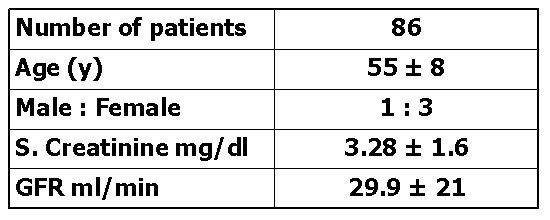
Table 2. Original Disease (%)
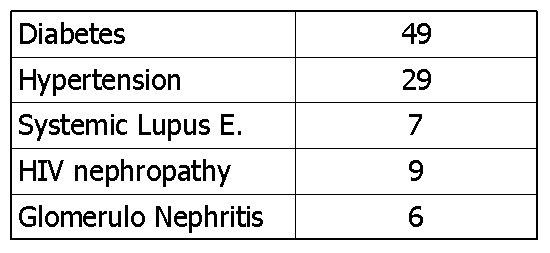 Table 3. Type of Insurance (%)
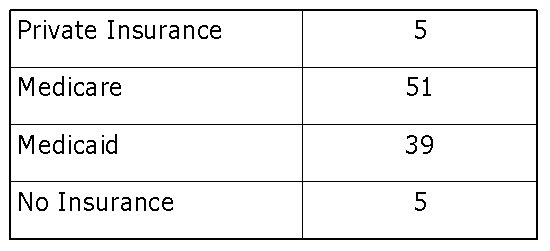 Table 4. Financial status and Symptoms
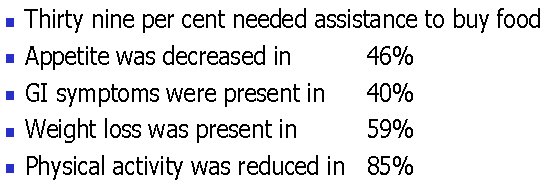 Table 5. Symptoms and food intake in CKD patients staged according to K/DOQI guidelines
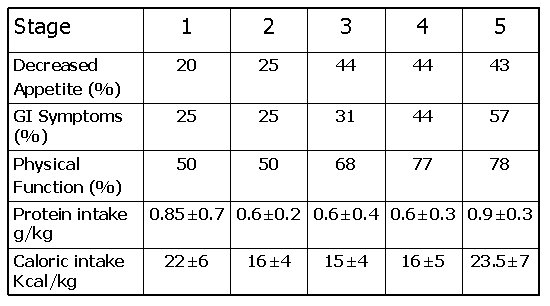 Table 6. Anthropometric measurements and laboratory parameters in CKD patients staged according to K/DOQI guidelines
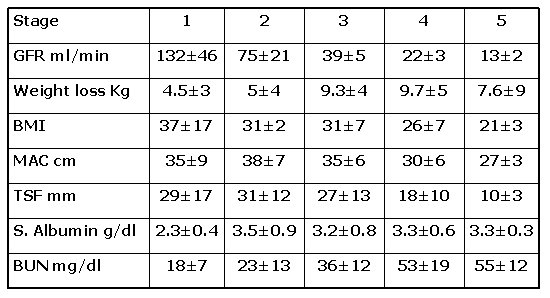 7. Laboratory parameters in CKD patients staged according K/DOQI guidelines
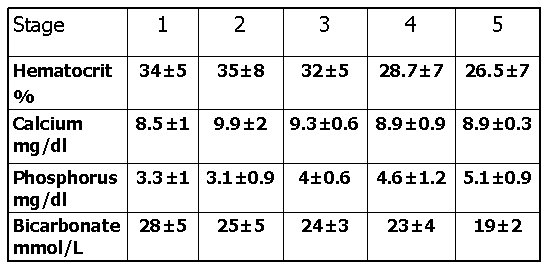
|